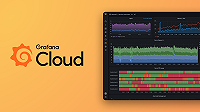Important: This documentation is about an older version. It's relevant only to the release noted, many of the features and functions have been updated or replaced. Please view the current version.
prometheus.exporter.snmp
The prometheus.exporter.snmp component embeds
snmp_exporter. snmp_exporter lets you collect SNMP data and expose them as Prometheus metrics.
Note
prometheus.exporter.snmpuses the latest configuration introduced in version 0.26 of the Prometheussnmp_exporter.
Usage
prometheus.exporter.snmp "LABEL" {
config_file = SNMP_CONFIG_FILE_PATH
target "TARGET_NAME" {
address = TARGET_ADDRESS
}
}or
prometheus.exporter.snmp "LABEL" {
config_file = SNMP_CONFIG_FILE_PATH
targets = TARGET_LIST
}Arguments
The following arguments can be used to configure the exporter’s behavior. Omitted fields take their default values.
| Name | Type | Description | Default | Required |
|---|---|---|---|---|
config_file | string | SNMP configuration file defining custom modules. | no | |
config | string or secret | SNMP configuration as inline string. | no | |
targets | list(map(string)) | SNMP targets. | no |
The config_file argument points to a YAML file defining which snmp_exporter modules to use.
Refer to snmp_exporter for details on how to generate a configuration file.
The config argument must be a YAML document as string defining which SNMP modules and auths to use.
config is typically loaded by using the exports of another component. For example,
local.file.LABEL.contentremote.http.LABEL.contentremote.s3.LABEL.content
The targets argument is an alternative to the target block. This is useful when SNMP targets are supplied by another component.
The following labels can be set to a target:
name: The name of the target (required).addressor__address__: The address of SNMP device (required).module: The SNMP module to use for polling.auth: The SNMP authentication profile to use.walk_params: The config to use for this target.
Blocks
The following blocks are supported inside the definition of
prometheus.exporter.snmp to configure collector-specific options:
| Hierarchy | Name | Description | Required |
|---|---|---|---|
| target | target | Configures an SNMP target. | no |
| walk_param | walk_param | SNMP connection profiles to override default SNMP settings. | no |
target block
The target block defines an individual SNMP target.
The target block may be specified multiple times to define multiple targets. The label of the block is required and will be used in the target’s job label.
| Name | Type | Description | Default | Required |
|---|---|---|---|---|
address | string | The address of SNMP device. | yes | |
module | string | SNMP module to use for polling. | "" | no |
auth | string | SNMP authentication profile to use. | "" | no |
walk_params | string | Config to use for this target. | "" | no |
snmp_context | string | Override the context_name parameter in the SNMP configuration file. | "" | no |
walk_param block
The walk_param block defines an individual SNMP connection profile that can be used to override default SNMP settings.
The walk_param block may be specified multiple times to define multiple SNMP connection profiles.
| Name | Type | Description | Default | Required |
|---|---|---|---|---|
name | string | Name of the module to override. | no | |
max_repetitions | int | How many objects to request with GET/GETBULK. | 25 | no |
retries | int | How many times to retry a failed request. | 3 | no |
timeout | duration | Timeout for each individual SNMP request. | no |
Exported fields
The following fields are exported and can be referenced by other components.
| Name | Type | Description |
|---|---|---|
targets | list(map(string)) | The targets that can be used to collect exporter metrics. |
For example, the targets can either be passed to a discovery.relabel component to rewrite the targets’ label sets or to a prometheus.scrape component that collects the exposed metrics.
The exported targets use the configured in-memory traffic address specified by the run command.
Component health
prometheus.exporter.snmp is only reported as unhealthy if given
an invalid configuration. In those cases, exported fields retain their last
healthy values.
Debug information
prometheus.exporter.snmp does not expose any component-specific
debug information.
Debug metrics
prometheus.exporter.snmp does not expose any component-specific
debug metrics.
Example
This example uses a prometheus.scrape component to collect metrics
from prometheus.exporter.snmp:
prometheus.exporter.snmp "example" {
config_file = "snmp_modules.yml"
target "network_switch_1" {
address = "192.168.1.2"
module = "if_mib"
walk_params = "public"
}
target "network_router_2" {
address = "192.168.1.3"
module = "mikrotik"
walk_params = "private"
}
walk_param "private" {
retries = "2"
}
walk_param "public" {
retries = "2"
}
}
// Configure a prometheus.scrape component to collect SNMP metrics.
prometheus.scrape "demo" {
targets = prometheus.exporter.snmp.example.targets
forward_to = [ /* ... */ ]
}This example uses an embedded configuration (with secrets):
local.file "snmp_config" {
filename = "snmp_modules.yml"
is_secret = true
}
prometheus.exporter.snmp "example" {
config = local.file.snmp_config.content
target "network_switch_1" {
address = "192.168.1.2"
module = "if_mib"
walk_params = "public"
}
target "network_router_2" {
address = "192.168.1.3"
module = "mikrotik"
walk_params = "private"
}
walk_param "private" {
retries = "2"
}
walk_param "public" {
retries = "2"
}
}
// Configure a prometheus.scrape component to collect SNMP metrics.
prometheus.scrape "demo" {
targets = prometheus.exporter.snmp.example.targets
forward_to = [prometheus.remote_write.demo.receiver]
}
prometheus.remote_write "demo" {
endpoint {
url = <PROMETHEUS_REMOTE_WRITE_URL>
basic_auth {
username = <USERNAME>
password = <PASSWORD>
}
}
}Replace the following:
<PROMETHEUS_REMOTE_WRITE_URL>: The URL of the Prometheus remote_write-compatible server to send metrics to.<USERNAME>: The username to use for authentication to the remote_write API.<PASSWORD>: The password to use for authentication to the remote_write API.
This example uses the alternative way to pass targets:
prometheus.exporter.snmp "example" {
config_file = "snmp_modules.yml"
targets = [
{
"name" = "network_switch_1",
"address" = "192.168.1.2",
"module" = "if_mib",
"walk_params" = "public",
},
{
"name" = "network_router_2",
"address" = "192.168.1.3",
"module" = "mikrotik",
"walk_params" = "private",
},
]
walk_param "private" {
retries = "2"
}
walk_param "public" {
retries = "2"
}
}
// Configure a prometheus.scrape component to collect SNMP metrics.
prometheus.scrape "demo" {
targets = prometheus.exporter.snmp.example.targets
forward_to = [ /* ... */ ]
}This example uses the local.file component to read targets from a YAML file and send them to the prometheus.exporter.snmp component:
local.file "targets" {
filename = "targets.yml"
}
prometheus.exporter.snmp "example" {
config_file = "snmp_modules.yml"
targets = encoding.from_yaml(local.file.targets.content)
walk_param "private" {
retries = "2"
}
walk_param "public" {
retries = "2"
}
}
// Configure a prometheus.scrape component to collect SNMP metrics.
prometheus.scrape "demo" {
targets = prometheus.exporter.snmp.example.targets
forward_to = [ /* ... */ ]
}The YAML file in this example looks like this:
- name: t1
address: localhost:161
module: default
auth: public_v2
- name: t2
address: localhost:161
module: default
auth: public_v2This example uses the discovery.file component to send targets to the prometheus.exporter.snmp component:
discovery.file "example" {
files = ["targets.yml"]
}
prometheus.exporter.snmp "example" {
config_file = "snmp_modules.yml"
targets = discovery.file.example.targets
}
// Configure a prometheus.scrape component to collect SNMP metrics.
prometheus.scrape "demo" {
targets = prometheus.exporter.snmp.example.targets
forward_to = [ /* ... */ ]
}The YAML file in this example looks like this:
- targets:
- localhost:161
labels:
name: t1
module: default
auth: public_v2
- targets:
- localhost:161
labels:
name: t2
module: default
auth: public_v2Compatible components
prometheus.exporter.snmp has exports that can be consumed by the following components:
- Components that consume Targets
Note
Connecting some components may not be sensible or components may require further configuration to make the connection work correctly. Refer to the linked documentation for more details.



